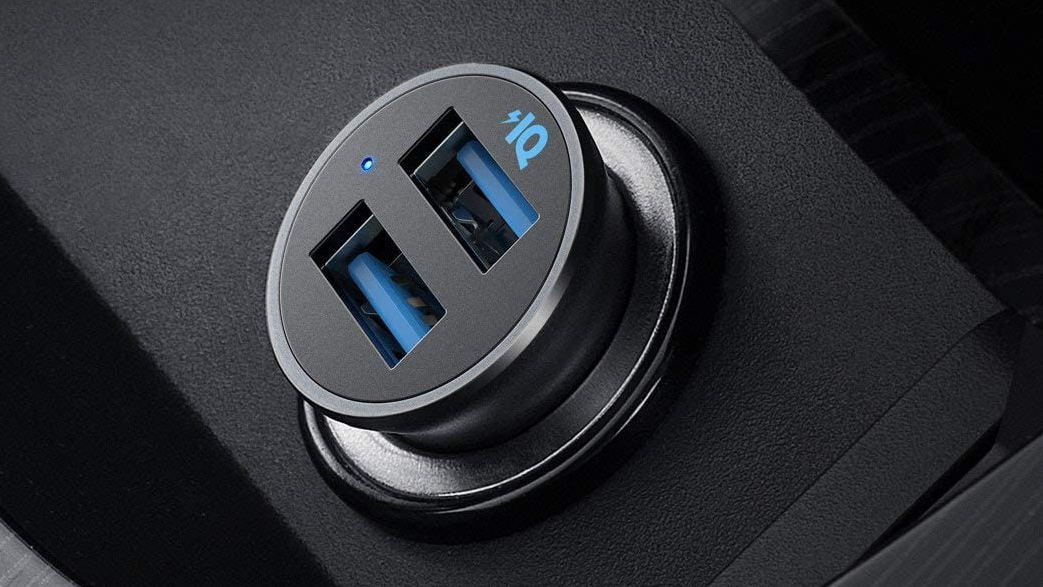What charges your phone faster, a USB port or 12v cigarette lighter socket?
How to charge your smartphone in the car as quickly as possible


Most modern cars offer at least two ways to charge up a smartphone, in the form of a 12V lighter socket and a USB port. The latter could be more convenient for many, as it uses the same cable you charge your smartphone with at home, whereas the 12V socket requires an adapter and a USB cable.
But, while it’s tempting to grab a cable and use the USB port, you might well find your smartphone battery charges very slow, or in some cases not at all. This is because not all USB ports are created equally, and those fitted to cars often deliver far less power than those at home.
- Best car charger: 12V to USB adaptors to keep your phone .juiced
By having a lower amperage, car USB ports sometimes aren’t powerful enough to charge a smartphone while it is also running power-sapping apps like a navigation system.
So you might get to your destination and find the phone has lost charge, despite being plugged in the entire way. It’s a similar story for your passengers, who might want to charge their phone while playing a game but struggle to get any power fed into the battery.
It’s all about the amperage
This situation is all to do with amperage. USB ports at home, such as those of a wall plug or on the side of your laptop, tend to have an output of 2.1A or 2.4A. For comparison, many USB ports in cars output just 0.5A, which means your phone battery will be charged very slowly indeed, or even not at all.
Times are slowly changing and today most new cars have at least one USB port that is intended for smartphone use, so your phone can be used to deliver Apple CarPlay or Android Auto and have its battery topped up at a reasonable rate. Some of today’s cars also now come with USB-C ports, which should offer even quicker charging, but this isn’t universally the case.
Even then, you could be better off using the 12V lighter socket. This might come as a surprise, given how the chunky socket looks positively archaic compared to a modern USB connection, but its 12 volts and higher amperage delivery make a big difference to smartphone charge times – and the one socket can be used to charge several devices at once, all more quickly than a USB port.
Get all the latest news, reviews, deals and buying guides on gorgeous tech, home and active products from the T3 experts
There are a great many options available to buy, with most priced at around £10 or less. Many are barely larger than the 12V socket itself, yet have one or two USB ports for powering or charging two devices at once. Because USB chargers tend to deliver 5V, the 12V available from the lighter socket means there is plenty of voltage to share between multiple devices, and the charge rate can be in the region of 12 watts per device.
USB-C charging from a 12V socket
Some newer 12V chargers also offer USB-C connections supporting up to 18 or even 24 watts for one device. While USB-C still isn’t universal among smartphone users, we think a good option is a 12V adapter that has both a USB-A and USB-C connection. If you need to charge a car full of gadgets at once, more expensive adapters with multiple ports are available, but these tend to be larger and have a cable to plug into the 12V socket.
But, while the 12V connection can offer far quicker charge times than a USB port, you should proceed with caution. It is crucial that the adapter you use is functioning correctly, as a faulty charger could cause too much power to be sent to your phone, either at the wrong voltage, wattage or amperage. Over time, this can cause damage to your phone, or whatever device you are powering or charging.
Make sure to buy a 12V charger from a reputable company, like Belkin or Anker. They are a little more expensive than the cheapest options, but come with the reassurance that they are less likely to develop a fault and cause damage to your smartphone. You should also make sure to use a suitable cable, such as one that meets Apple’s 'Made for iPhone' certification when charging an iPhone or iPad in the car.
Now, with your newfound knowledge, check out the best car chargers available to humankind.
Liked this?
- Best dash cam
- Best car seat: keep your baby or toddler safe on the road
Alistair is a freelance automotive and technology journalist. He has bylines on esteemed sites such as the BBC, Forbes, TechRadar, and of best of all, T3, where he covers topics ranging from classic cars and men's lifestyle, to smart home technology, phones, electric cars, autonomy, Swiss watches, and much more besides. He is an experienced journalist, writing news, features, interviews and product reviews. If that didn't make him busy enough, he is also the co-host of the AutoChat podcast.
